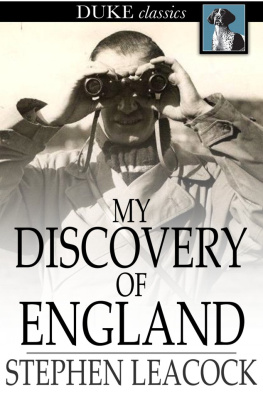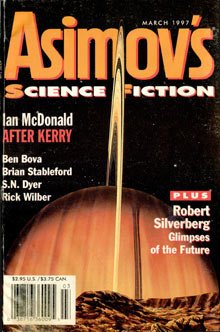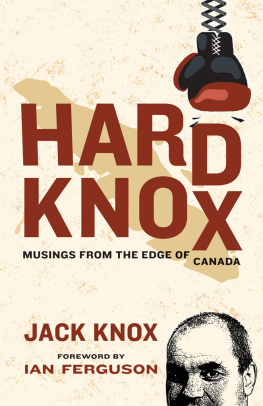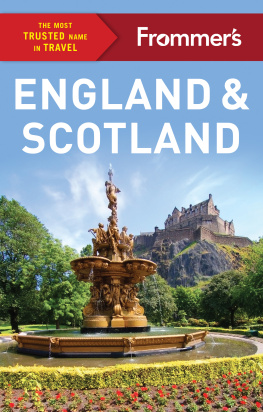Stephen Leacock - My Discovery of England
Here you can read online Stephen Leacock - My Discovery of England full text of the book (entire story) in english for free. Download pdf and epub, get meaning, cover and reviews about this ebook. year: 2014, publisher: Duke Classics, genre: Art. Description of the work, (preface) as well as reviews are available. Best literature library LitArk.com created for fans of good reading and offers a wide selection of genres:
Romance novel
Science fiction
Adventure
Detective
Science
History
Home and family
Prose
Art
Politics
Computer
Non-fiction
Religion
Business
Children
Humor
Choose a favorite category and find really read worthwhile books. Enjoy immersion in the world of imagination, feel the emotions of the characters or learn something new for yourself, make an fascinating discovery.
- Book:My Discovery of England
- Author:
- Publisher:Duke Classics
- Genre:
- Year:2014
- Rating:3 / 5
- Favourites:Add to favourites
- Your mark:
- 60
- 1
- 2
- 3
- 4
- 5
My Discovery of England: summary, description and annotation
We offer to read an annotation, description, summary or preface (depends on what the author of the book "My Discovery of England" wrote himself). If you haven't found the necessary information about the book — write in the comments, we will try to find it.
Canadian humorist and academic Stephen Leacock had a plethora of opportunities to explore new cultures as he traveled the globe in support of his many popular books, often giving scholarly talks along the way. In this uproarious volume of essays and vignettes, Leacock sets down his impressions of a promotional tour of England.
My Discovery of England — read online for free the complete book (whole text) full work
Below is the text of the book, divided by pages. System saving the place of the last page read, allows you to conveniently read the book "My Discovery of England" online for free, without having to search again every time where you left off. Put a bookmark, and you can go to the page where you finished reading at any time.
Font size:
Interval:
Bookmark:

First published in 1922
ISBN 978-1-62013-503-7
Duke Classics
2014 Duke Classics and its licensors. All rights reserved.
While every effort has been used to ensure the accuracy and reliability of the information contained in this edition, Duke Classics does not assume liability or responsibility for any errors or omissions in this book. Duke Classics does not accept responsibility for loss suffered as a result of reliance upon the accuracy or currency of information contained in this book.
LADIES AND GENTLEMEN: It is usual on these occasions for the chairmanto begin something like this: "The lecturer, I am sure, needs nointroduction from me." And indeed, when I have been the lecturer andsomebody else has been the chairman, I have more than once suspectedmyself of being the better man of the two. Of course I hope I shouldalways have the good mannersI am sure Mr. Leacock hasto disguisethat suspicion. However, one has to go through these formalities, and Iwill therefore introduce the lecturer to you.
Ladies and gentlemen, this is Mr. Stephen Leacock. Mr. Leacock, this isthe flower of London intelligenceor perhaps I should say one of theflowers; the rest are coming to your other lectures.
In ordinary social life one stops at an introduction and does notproceed to personal details. But behaviour on the platform, as on thestage, is seldom ordinary. I will therefore tell you a thing or twoabout Mr. Leacock. In the first place, by vocation he is a Professor ofPolitical Economy, and he practises humourfrenzied fiction insteadof frenzied financeby way of recreation. There he differs a good dealfrom me, who have to study the products of humour for my living, and byway of recreation read Mr. Leacock on political economy.
Further, Mr. Leacock is all-British, being English by birth and Canadianby residence, I mention this for two reasons: firstly, because Englandand the Empire are very proud to claim him for their own, and, secondly,because I do not wish his nationality to be confused with that of hisneighbours on the other side. For English and American humourists havenot always seen eye to eye. When we fail to appreciate their humour theysay we are too dull and effete to understand it: and when they do notappreciate ours they say we haven't got any.
Now Mr. Leacock's humour is British by heredity; but he has caughtsomething of the spirit of American humour by force of association. Thisputs him in a similar position to that in which I found myself once whenI took the liberty of swimming across a rather large loch in Scotland.After climbing into the boat I was in the act of drying myself when Iwas accosted by the proprietor of the hotel adjacent to the shore. "Youhave no business to be bathing here," he shouted. "I'm not," I said;"I'm bathing on the other side." In the same way, if anyone on eitherside of the water is unintelligent enough to criticise Mr. Leacock'shumour, he can always say it comes from the other side. But the truthis that his humour contains all that is best in the humour of bothhemispheres.
Having fulfilled my duty as chairman, in that I have told you nothingthat you did not know beforeexcept, perhaps, my swimming feat, whichnever got into the Press because I have a very bad publicity agentIwill not detain you longer from what you are really wanting to get at;but ask Mr. Leacock to proceed at once with his lecture on "FrenziedFiction."
FOR some years past a rising tide of lecturers and literary men fromEngland has washed upon the shores of our North American continent. Thepurpose of each one of them is to make a new discovery of America. Theycome over to us travelling in great simplicity, and they return inthe ducal suite of the Aquitania. They carry away with them theirimpressions of America, and when they reach England they sell them. Thisexport of impressions has now been going on so long that the balanceof trade in impressions is all disturbed. There is no doubt that theAmericans and Canadians have been too generous in this matter of givingaway impressions. We emit them with the careless ease of a glow worm,and like the glow-worm ask for nothing in return.
But this irregular and one-sided traffic has now assumed such greatproportions that we are compelled to ask whether it is right to allowthese people to carry away from us impressions of the very highestcommercial value without giving us any pecuniary compensation whatever.British lecturers have been known to land in New York, pass the customs,drive uptown in a closed taxi, and then forward to England from theclosed taxi itself ten dollars' worth of impressions of Americannational character. I have myself seen an English literary man,thebiggest, I believe: he had at least the appearance of it; sit in thecorridor of a fashionable New York hotel and look gloomily into his hat,and then from his very hat produce an estimate of the genius of Amer icaat twenty cents a word. The nice question as to whose twenty cents thatwas never seems to have occurred to him.
I am not writing in the faintest spirit of jealousy. I quite admit theextraordinary ability that is involved in this peculiar susceptibilityto impressions. I have estimated that some of these English visitorshave been able to receive impressions at the rate of four to the second;in fact, they seem to get them every time they see twenty cents. Butwithout jealousy or complaint, I do feel that somehow these impressionsare inadequate and fail to depict us as we really are.
Let me illustrate what I mean. Here are some of the impressions of NewYork, gathered from visitors' discoveries of America, and reproduced notperhaps word for word but as closely as I can remember them. "New York",writes one, "nestling at the foot of the Hudson, gave me an impressionof cosiness, of tiny graciousness: in short, of weeness." But comparethis"New York," according to another discoverer of America, "gave mean impression of size, of vastness; there seemed to be a big ness aboutit not found in smaller places." A third visitor writes, "New Yorkstruck me as hard, cruel, almost inhuman." This, I think, was becausehis taxi driver had charged him three dollars. "The first thing thatstruck me in New York," writes another, "was the Statue of Liberty."But, after all, that was only natural: it was the first thing that couldreach him.
Nor is it only the impressions of the metropolis that seem to fall shortof reality. Let me quote a few others taken at random here and thereover the continent.
"I took from Pittsburg," says an English visitor, "an impression ofsomething that I could hardly definean atmosphere rather than anidea."
All very well, But, after all, had he the right to take it? Granted thatPittsburg has an atmosphere rather than an idea, the attempt to carryaway this atmosphere surely borders on rapacity.
"New Orleans," writes another visitor, "opened her arms to me andbestowed upon me the soft and languorous kiss of the Caribbean." Thisstatement may or may not be true; but in any case it hardly seems thefair thing to mention it.
"Chicago," according to another book of discovery, "struck me as a largecity. Situated as it is and where it is, it seems destined to be a placeof importance."
Or here, again, is a form of "impression" that recurs again andagain-"At Cleveland I felt a distinct note of optimism in the air."
Font size:
Interval:
Bookmark:
Similar books «My Discovery of England»
Look at similar books to My Discovery of England. We have selected literature similar in name and meaning in the hope of providing readers with more options to find new, interesting, not yet read works.
Discussion, reviews of the book My Discovery of England and just readers' own opinions. Leave your comments, write what you think about the work, its meaning or the main characters. Specify what exactly you liked and what you didn't like, and why you think so.










